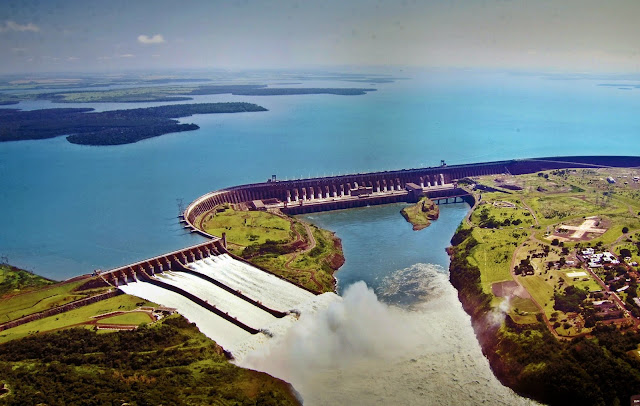 |
| Guaíra Falls which were submerged by the Itaipú dam in 1982 |
Around 10,000 families were displaced by construction, and the work went ahead without proper public consultation. The resulting reservoir completely covered one of the world's largest waterfalls, the Guaíra Falls, and the Brazilian government liquidated Guaíra Falls National Park. Subsequently, the rock face of the falls was dynamited which means that they could never be restored. And the whole eco-system has been damaged as two very different ecoregions (originally separated by the falls) are now linked.
Glass's Itaipú is being performed by the Crouch End Festival Chorus and London Orchestra da Camera, conductor David Temple, at the Queen Elizabeth Hall on Sunday 2 February 2020, which gives us a chance to experience this powerful music and decide whether it should be a celebration or a requiem.
Also in the programme is Stravinsky's Symphony of Psalms and his Babel from 1944, a rarely-performed work which was part of the Genesis Suite, a collaborative work for narrator and orchestra with movements by Arnold Schoenberg, Nathaniel Shilkret, Alexander Tansman, Darius Milhaud, Mario Castelnuovo-Tedesco, Ernst Toch and Igor Stravinsky.
 |
| Itaipú dam |








%20as%20Leporello%20and%20Erik%20Tofte%20(back%20to%20camera%20in%20garnet%20shirt)%20as%20Giovanni%20-%20Don%20Giovanni.jpg)


No comments:
Post a Comment